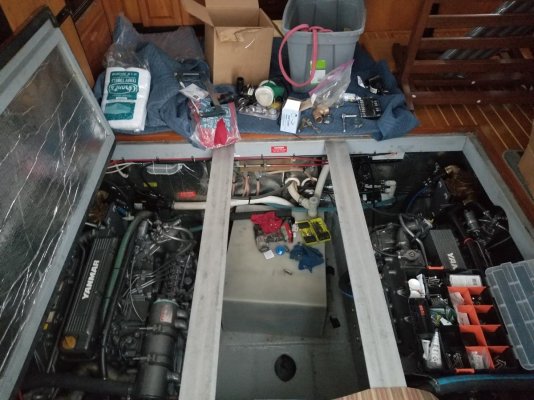Lepke
Guru
- Joined
- Jun 19, 2016
- Messages
- 3,035
- Location
- US
- Vessel Name
- Charlie Harper
- Vessel Make
- Wheeler Shipyard 83'
Teach your wife to dock. It will make it more interesting for her. Don't yell at her when you get excited.
You couldn't give me a Volvo engine of any size, warrantied or not. Otherwise most yacht engines are about equal.
Twice in 60 years, I came back on one engine. For that reliability and the ease of docking, I prefer twins. Both times I could have fixed the problem at sea but chose not to.
You have twice the oil changes and twice the equipment to maintain, but you don't use twice the fuel.
You couldn't give me a Volvo engine of any size, warrantied or not. Otherwise most yacht engines are about equal.
Twice in 60 years, I came back on one engine. For that reliability and the ease of docking, I prefer twins. Both times I could have fixed the problem at sea but chose not to.
You have twice the oil changes and twice the equipment to maintain, but you don't use twice the fuel.


